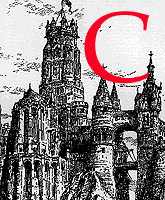
onvalescence usually refers to the "gradual recovery of health and strength after illness." Krienke (2021) and Ménager (2020) showed that even if the theme of convalescence plays a significant role in 19th- and 20th-century literature, reflecting the changing societal attitudes towards health, the human body, and the mind, it still remains a “neglected historical [and cultural] paradigm” (Krienke 149). Whether in a Victorian sickroom or in a sanatorium, with a change of air or with antibiotics, the psychological and physiological journeys towards recovery provide rich ground for exploring themes of vulnerability, resilience, and transformation. Charles Dickens, Elizabeth Gaskell, George Eliot, Winifred Holtby, Ernest Hemingway, Claude McKay, L. P. Hartley, Sylvia Plath, Audre Lorde and Anita Desai have all woven narratives around these themes, offering insights into the social structures and subjective experiences of health and ill health.
While medical humanities and body studies have often focused on disease, trauma and illness on the one hand, and on empirical medicine and professional care on the other, this symposium aims to delve deeply into the intricate portrayals of convalescence in 19th- and 20th-century literature, exploring how these narratives convey the evolving representations and experiences of care and recovery, and complicate the social metaphors and categories sometimes associated with illnesses (Sontag 1978 ) and poor health. While it does “not necessarily portend complete recovery” (Krienke 2021, 2), convalescence in literature is—unlike the climactic diseases, accidents or crises—a paradoxically uneventful yet dramatic period of time that often brings a sense of liminality and uncertainty in character development and plot progression. By reevaluating both canonical and marginalised texts, and by examining how they engaged with their historical contexts, we hope to analyse how culture, class, race, and gender shaped various narratives of convalescence highlighting the diverse ways in which different authors and genres approach this “network of shared experiences of uncertain health, lingering trauma, and new opportunities” (Krienke 8).
Schaffer has shown that in 19th century novels, fictional care communities often offer “a temporal respite as well as a social haven, a space outside of political, productive, or practical needs” (534 ). How do these literary depictions of convalescent care compare with 20th century fiction, particularly given the modernist preoccupation with speed that Enda Duffy demonstrates in The Speed Handbook (2009)? What does it mean to convalesce in a society that moves ever faster and how is convalescence rendered in (post)modernist fiction? And while Fifield has demonstrated that “sickness is where [Virginia] Woolf’s modernism emerges” (87 ) and that her writing was an ambiguous “rehabilitative practice” (76), what roles do reading and writing play in the experience of convalescence?
We invite proposals on the topic of convalescence in its broadest sense in literature from any genre and artistic strand of the 19th and 20th centuries. We aim to foster cross-sectional dialogue, encouraging collaboration between scholars working on different time periods and genres and are particularly interested in papers that seek to bridge or question the divide between Victorian and Modernist literatures. Topics include (but are not limited to):
- genre and convalescence: convalescence and coming of age / Bildungsroman; convalescence and the supernatural; convalescence in war literature; the narrative strategies of convalescence; (auto)biographical accounts of convalescence; convalescence in speculative fiction etc.
- the subjective experience of convalescence: spiritual and religious dimensions of recovery; convalescent introspection; the affects of convalescence; solitude, isolation and contagion; dependence on help and medication; convalescence and care-giving; treatment compliance (or refusal); agency v passivity in convalescence; empowering convalescence and post-traumatic growth; mental health, trauma and convalescence; maternity and post-partum recovery etc.
- the social, political and economic implications of illness and recovery: convalescence from the margins; the impact of colonialism and systemic oppression on convalescence; convalescence and marginalised bodies; gendered illness and convalescence; the intersection of convalescence and disability
- the materiality and logistics of convalescence: spaces and places of convalescence; convalescence in nature; subjects and objects of the sickroom; convalescent aids, medication and therapeutic tools, post-acute care, pain management and coping techniques
- convalescence and time: convalescence as a transitional period; time out of time; chronic illness; never-ending convalescence
Paper proposals of max 300 words and a bio (max 100 words) should be sent before 20 December 2024 to: convalescencelit2025@gmail.com.
Responses will be given by 28 February, 2025.
Please indicate in your proposal whether you wish to attend in person in Nantes or Delhi or via Zoom.
Created 5 September 2024